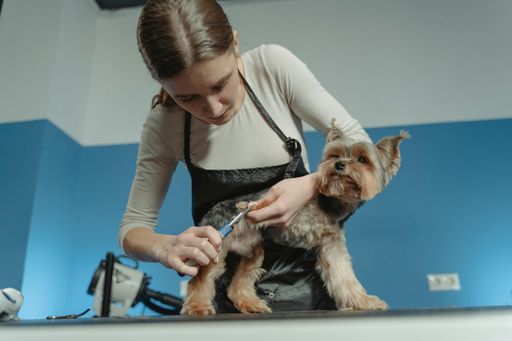Plenty of people want an animal companion. There are even studies that show how beneficial furry friends are for your health. Unfortunately, finding the right pet can cost a small fortune, and you never know when you'll be stuck with a hefty vet bill after an accident. Luckily, there are some ways to minimize your pet expenses. This will vary from animal to animal, but here are some ways you can get started.
Adopt a Rescue
Countless animal rescue groups and shelters are full of incredible animals ready for a loving home. A pet store or a breeder with adorable little puppies can be enticing, but also expensive, and it's hard to be sure exactly of the conditions these animals live in. Plus, buying a puppy often doesn't cover the costs of shots and spaying or neutering. Shelters often cover these costs. In fact, some will refuse to adopt out animals until they have been spayed or neutered. You'll pay less, and you'll know the fee will go towards keeping the shelter running. When shelters start to fill up, they will sometimes lower the fee so they can create more space for new animals in need.
Stop Buying Toys
This doesn't mean your pet shouldn't have things to play with, but it does mean stop buying toys your pet will immediately rip up. If you do, don't pay for the more expensive ones. Your pet won't notice, but your wallet will. Those puzzle treat toys look fun, but will they hold your pet's attention for more than a few hours? Mental stimulation is important for animals, but the key is to find something that will be interesting to your specific pet. Until you know their preferences, hold off on the more expensive stuff.
Be Picky About Food
Buying those big bags of dog food can get expensive, but a healthy diet is crucial to good health. Plus, if you skimp on kibble, your dog may not get all of the nutrients it needs, which could mean more vet visits in the future. The cheaper foods may also include larger quantities of filler, so your dog needs to eat more to actually be satisfied, which means you don't actually wind up saving much money.
Invest in Training
Even if you adopt an older pet, chances are it can still benefit from some basic obedience training. Not only will this help keep your pet safe, but it can also help you save on vet bills. Dogs who don't listen can run into the street or other dangerous areas. If your dog chews on everything you own, crate training can keep it separate from your valuables, so you don't have to keep replacing them. Certain destructive behaviors can be a stress response, which training can help you identify.
Budget Carefully
Before you even find a pet, be realistic about your finances. Know how much you can afford to spend on a pet every month, and make sure you have some cash set aside for emergencies. Some animals require more intensive care than others, so you should budget your time as well. Chances are you'll have to make some sacrifices and adjustments to your lifestyle. For example, if you get a dog, you'll need to schedule in time for walks and a dog sitter if they don't do well at home alone. As you adjust to new routines with your pet, you'll learn new ways to save time, like how you can skip the lines at the bank by going anywhere with a fast ATM router to get cash, so you'll be on your way to your next dog park adventure sooner.
Interview Your Vet
If you have the option, shop around before you settle on a vet. Different offices will have different prices and services, so you can include things like cost, location, and appointment availability in your list of criteria. Many cities have clinics that provide low-cost procedures, though these may only be offered on specific days. If you can wait, special clinic event pricing could be worth it. The lowest bidder may not be the best vet, but this way you can better choose a balance between quality and cost.
Pets are loved and valued family members, but sometimes the expenses can surge to overwhelming numbers. By taking the time to keep your pet healthy, investing in the right products, and sticking to a realistic budget, you can keep some of those costs down without sacrificing your pet's quality of life.



















